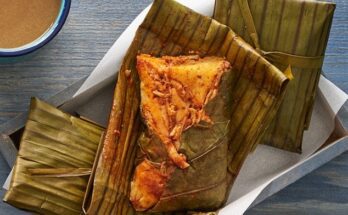Bread baking is a fun hobby. It has a lot of practical purposes in addition to the enjoyment it brings. You also don’t need to be a master chef to get started. Even a novice baker can learn bread-making quickly. There are many types of bread you can make ranging from exotic and complex to exceedingly simple. You can start with the simple and work your way to the more artisan types of bread.
That being said, there are still some things that a bread baker of any level, even a novice; should know before they start.
First, an amateur bread baker should learn all the health and safety standards. This is true for any job or hobby that involves food preparation خبز برجر البطاطس.
Type a message.
The simplest examples you likely already know are just through common sense, even if you have never prepared food before. Always wash your hands before handling tools and ingredients, keep your food preparation area clean and well organized, always wash your tools and preparation space after every use, and so on.
Little mistakes can cause big problems. Leaving knives lying around unorganized on the counter can result in bad cuts, or forgetting to turn off an oven can start a fire.
Most people are already well aware of basic kitchen safety and sanitation, but it’s still a very important thing to keep in mind. Especially if you have small children in the house.
Once you start baking bread for the first time, look for very detailed recipes. It can be tempting to jump right into your favorite types of bread. But these are most likely fancy and complex. Recipes intended for seasoned bread bakers may leave out small details, since these may be steps that you are simply expected to know already.
If you’re still new to all this, then choose the bread recipes that cover everything in detail.
Always remember that there are some pretty big differences between the bread you buy from the store and the bread you will be making at home. The biggest difference to keep in mind is the expiration date.
Store-bought bread is pumped full of preservatives to make it last longer. Your homemade bread will be much healthier for you. But the lack of preservatives does result in shorter shelf life. This is rarely a problem, though, because freshly baked bread will usually be devoured by your family very quickly.
Before you start making your bread, consider everything you will need and have it ready. Some things might slip your mind entirely. For instance, you will need a place to put the bread once it is made. It won’t come out of your oven in one of those plastic bags like the ones you buy at the grocery store. Have a way to store it safely that will maintain its freshness for as long as possible.
You’ll also need to decide if you’re going to make bread completely from scratch and bake it in the oven; or if you’re going to use a bread-making machine. You might want to try baking a few loaves without a machine and then decide whether you want to make the purchase.
The tools and supplies most likely to slip your minds are those related to the conveniences you’ve gotten used to from store-bought bread. For instance, store-bought bread is already sliced, your homemade bread will not be. You will want to get some good serrated knives and a bread slicer for nice even cuts.





